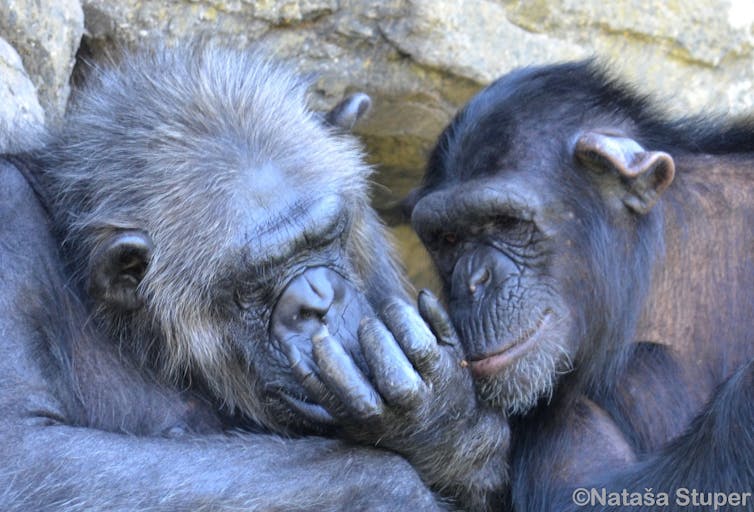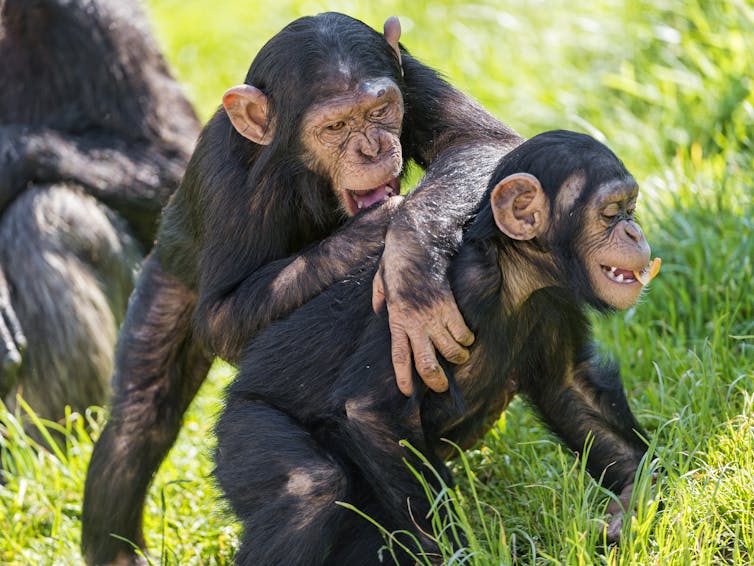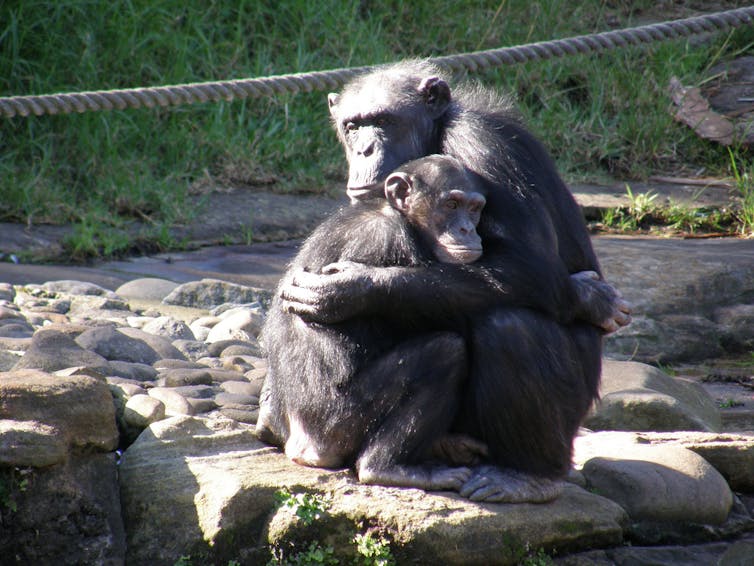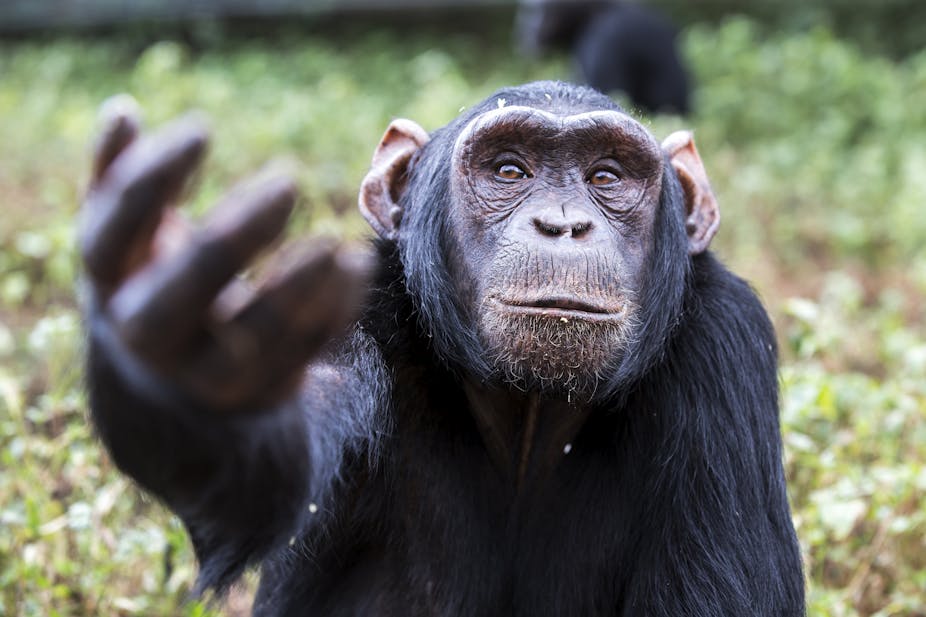I can quite happily go to a zoo just to watch the chimpanzees. It is not that the other animals are boring, but that chimps are so fascinating. In recent days the media has reported their drinking of alcohol, their ability to vary smiles and a US move to designate them as endangered. So, what makes chimps so attractive to scientists and the general public alike?
From a scientific point of view they are our closest genetic relative. We share more than 98% of the same DNA and had a common evolutionary ancestor only 5-7m years ago. So chimpanzee biology and behaviour can tell us much about ourselves. And of course chimps look like us (as do most primate species). Due to these similarities, chimps are one of the most studied primate species of all time.

Chimps were first described approximately 300 years ago and ever since they have appeared in books, films, TV adverts and have even flown in space ships. Their importance in understanding human evolution cannot be denied and this further adds to their high profile within human societies. But during my childhood, chimps were portrayed on the TV as loveable clowns: just think of the Tarzan films or adverts for PG Tips.
However, in my opinion there is something else in the human condition that leads us to be infatuated with chimps. And it is not that they are the most cute and cuddly looking animal. That title goes to the giant panda. Instead it is to do with our human propensity to be voyeurs: we love to watch other people.
Interesting people are those who put on public display their loves, hates and passions. The problem is there is only so much staring and gawping that interesting people (celebrities aside) will tolerate. Chimps provide an alternative outlet for our fascination with others.

Chimps are passionate, scheming, aggressive animals. In many ways they seem to represent the human condition in its most elemental state. When we observe them we are looking at ourselves. But they act without the restrictions that polite society puts on us. And in zoos on wildlife documentaries, groups that are used to being watched by humans are not shy about expressing their desires, be they sexual or otherwise. In other words they are a voyeur’s dream.
To watch a group of chimpanzees is to watch a soap opera unfold before your eyes, but without the pretence of time passing quickly. They live life in the fast lane. Just as one example, chimpanzees are 100 to 1,000 times more aggressive than humans. Even TV soap operas do not show this much action happening in short spaces of time.

If a male chimp is angry with someone or something then he lets them know in no uncertain terms. This happens not just in terms of bashing things, but also through pronounced facial expressions such as bearing teeth. I think we humans are jealous of chimps because they can vent their aggressive feelings without societal disapproval.
A friend of mine use to work on a project observing captive giant pandas, the world’s most marketed animal. But despite their cuteness they were boring to watch, just eating bamboo, sleeping, defecating every half hour and mating once a year. I challenge anyone to spend a whole day observing them. They just have too little behavioural diversity, expressing interesting behaviours such as aggression or sex at very low frequencies.
Chimps also have a caring side. Once they have attacked and beaten another individual, they will soon go over and give them a hug to prevent this negative interaction spiralling out of control. They show empathy towards sick members of their group. Older individuals are tolerant of the capers of the younger individuals. They live in a loving society where individuals hold hands, hug and kiss in the manner of people from Latin countries. And their partiality to a spot of alcohol has now generated much excitement.
Even when chimps are sitting around doing nothing, as a human observer you sense that something interesting could happen at any second. They never seem to have vacant expressions even when they are resting. They appear to be scheming away, working out how to manipulate other members of their group for food, friendship or sex. Chimps give the impression of being intelligent without the need to be making and using tools to procure food – just sitting down will do.

Finally, chimps display remarkably strong personalities. Just one day of watching a group in a zoo is enough for you to determine their characters. Some are bold, others timid. Some are very agitated, whereas others seem serene. It is this blend of personalities that creates interesting group dynamics and the script for their soap operatic lives.
We are addicted to chimps because they let us spy on their lives, lives that are so rich and amazing that one, whose name was Flo, even had her obituary published in the Sunday Times newspaper.

